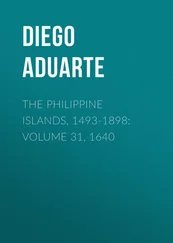John Bowring - A Visit to the Philippine Islands
Здесь есть возможность читать онлайн «John Bowring - A Visit to the Philippine Islands» — ознакомительный отрывок электронной книги совершенно бесплатно, а после прочтения отрывка купить полную версию. В некоторых случаях можно слушать аудио, скачать через торрент в формате fb2 и присутствует краткое содержание. Жанр: foreign_antique, foreign_prose, на английском языке. Описание произведения, (предисловие) а так же отзывы посетителей доступны на портале библиотеки ЛибКат.
- Название:A Visit to the Philippine Islands
- Автор:
- Жанр:
- Год:неизвестен
- ISBN:нет данных
- Рейтинг книги:3 / 5. Голосов: 1
-
Избранное:Добавить в избранное
- Отзывы:
-
Ваша оценка:
- 60
- 1
- 2
- 3
- 4
- 5
A Visit to the Philippine Islands: краткое содержание, описание и аннотация
Предлагаем к чтению аннотацию, описание, краткое содержание или предисловие (зависит от того, что написал сам автор книги «A Visit to the Philippine Islands»). Если вы не нашли необходимую информацию о книге — напишите в комментариях, мы постараемся отыскать её.
A Visit to the Philippine Islands — читать онлайн ознакомительный отрывок
Ниже представлен текст книги, разбитый по страницам. Система сохранения места последней прочитанной страницы, позволяет с удобством читать онлайн бесплатно книгу «A Visit to the Philippine Islands», без необходимости каждый раз заново искать на чём Вы остановились. Поставьте закладку, и сможете в любой момент перейти на страницу, на которой закончили чтение.
Интервал:
Закладка:
As to M. de la Gironière’s marvellous encounters and miraculous escapes from man and beast; his presence at feasts where among the delicacies were human brains, steeped by young girls in the juice of sugar-cane, of which he did not drink, but his servant did; his discoveries of native hands in “savory” pots prepared for food; his narratives where the rude Indians tell elaborate tales in the lackadaisy style of a fantastic novel; his vast possessions; his incredible influence over ferocious bandits and cruel savages; – all this must be taken at its value. I confess I have seen with some surprise, in M. de la Gironière’s book, two “testimonies” from M. Dumont d’Urville and Admiral La Place, in which, among other matters, they give an account of the hatching of eggs by men specially engaged for this purpose. 11They saw, as any one may, in the villages on the Pasig River, prodigious quantities of ducks and ducklings, and were “puzzled” to find how such multitudes could be produced; but they learnt the wonderful feat was accomplished by “lazy Tagál Indians,” who lay themselves down upon the eggs, which are placed in ashes. The patient incubators eat, drink, smoke, and chew their betel, and while they take care not to injure the fragile shells, they carefully remove the ducklings as they are brought into being (pp. 358 and 362). Now it may well be asked who takes care when the lazy Tagáls are asleep; and, if our worthy witnesses had reflected for a moment, they would have known that, if all the inhabitants were employed in no other office than that of egg-hatching, they would be hardly sufficient to incubate the “prodigious” numbers of ducklings which disport on the banks of the Pasig. The incubation is really produced by placing warm paddy husks under and over the eggs; they are deposited in frames; a canvas covering is spread over the husks; the art is to keep up the needful temperature; and one man is sufficient to the care of a large number of frames, from which he releases the ducklings as they are hatched, and conveys them in little flocks to the water-side. The communities are separated from one another by bamboo fences, but there is scarcely a cottage with a river frontage which has not its patero (or duckery).
CHAPTER VI
POPULATION
In the last generation a wonderful sensation was produced by the propagation of the great Malthusian discovery – the irresistible, indisputable, inexorable truth – that the productive powers of the soil were less and less able to compete with the consuming demands of the human race; that while population was increasing with the rapidity of a swift geometrical progression, the means of providing food lagged with the feebleness of a slow arithmetical advance more and more behind; that the seats at nature’s table – rich and abundant though it was – were being abundantly filled, and that there was no room for superfluous and uninvited guests; in a word, to use the adopted formula, that population was pressing more and more upon subsistence, and that the results must be increasing want, augmenting misery, and a train of calamities boundless as the catalogue of the infinite forms of mortal wretchedness.
Конец ознакомительного фрагмента.
Текст предоставлен ООО «ЛитРес».
Прочитайте эту книгу целиком, купив полную легальную версию на ЛитРес.
Безопасно оплатить книгу можно банковской картой Visa, MasterCard, Maestro, со счета мобильного телефона, с платежного терминала, в салоне МТС или Связной, через PayPal, WebMoney, Яндекс.Деньги, QIWI Кошелек, бонусными картами или другим удобным Вам способом.
1
A recent History of the Conquest of the Islands, and of the Spanish rule, is given by Buzeta, vol. i., pp. 57–98.
2
I visited some Cochin Chinese prisoners in the fortification. They had been taken at Turon, and one of them was a mandarin, who had exercised some authority there, – said to have been the commandant of the place. They wrote the Chinese characters, but were unable to understand the spoken language.
3
Among my early literary efforts was an essay by which the strange story was utterly disproved of the destruction of the MSS. which had served Cardinal Ximenes in preparing his Polyglot Bible.
4
One woman, six children.
5
All children.
6
The account given by Spanish writers of the taking of Manila by the British forces, and here translated from Buzeta’s narrative, seems given with as much fairness as could be expected.
“In 1762, the city of Manila had reached to wonderful prosperity. Its commercial relations extended to the Moluccas, Borneo, many parts of India, Malacca, Siam, Cochin China, China, Japan – in a word, to all places between the Isthmus of Suez and Behring’s Straits. But at the end of this year a disaster visited the city which prostrated it for many years after. The English, then at war with Spain, presented themselves with considerable forces. The most illustrious Archbishop Don Manuel Royo, then temporarily in charge of the government, had received no notice of any declaration of war, and had made no preparations for defence. The enemy’s fleet was the bearer of the news. The garrison was composed of the regiment del rey , which ought to have numbered 2,000 men, but was reduced to 500, by detachments, desertion and disease. There were only 80 artillerymen, all Indians, who knew little about the management of guns. In this state of matters, the English fleet suddenly appeared on the 22nd September, 1762. It consisted of thirteen ships, with 6,830 excellent troops. In total ignorance of public affairs, the fleet was supposed to be one of Chinese sampans . Some defensive measures were adopted, and an officer was sent to inquire of the commander of the fleet what was his nation, and what the object of his unannounced visit. The messenger returned the following day, accompanied by two English officers, who stated that the conquest of the islands was the purpose of the expedition. They were answered that the islands would defend themselves. On the night of the 23rd/24th, the enemy effected their disembarkation at the redoubt of St. Anthony Abbot. An attempt was made to dislodge them; it failed. They were fired upon in the morning of the 24th, but with little effect, so well were they entrenched and protected by various buildings. In order to arrest their proceedings, it was determined to make a vigorous sally, whose arrangement was left to M. Fallu, a French officer in the service of Spain; but this valiant soldier soon found that the foreign troops were too numerous to be dealt with by his forces. He fought during the night, and did not return to the citadel till 9 A.M. of the following day. There was a suspension of hostilities, and the invaders sent a flag of truce to the city. The bombardment continued on the 25th, and our grape-shot did much damage to the enemy. On the 28th, in the morning, the English general asked for the head of an officer who, having been the bearer of a flag of truce two days before, had been decapitated by the Indians. He demanded also the delivery of the persons who had committed the crime, and, if refused, threatened horrible reprisals. The requirement was complied with; and the Archbishop, who was exercising the functions of government, and directing the defence of the city, showed himself on horseback to the camp of the enemy, but without result. On the 29th, the English squadron received a reinforcement of three ships, which bore 350 Frenchmen from Pondicherry, who sought an opportunity to turn upon the English, and nominated two of their confidants to arrange their desertion and the accomplishment of their purpose; but the two confederates were supposed by the Indians to be Englishmen, and, instead of being welcomed, were slain. The English, being informed of what had taken place, secured themselves against further treachery on the part of the French. On the 3rd of October, a large force of Pampangan Indians having arrived, a sally was resolved upon: it was very bloody, but of no benefit for the defence. The following day the besiegers made a breach in the Fundicion bulwarks. A council of war was held, and the military decided that a capitulation was imperative: the citizens were for continuing the defence. Unfortunately the Archbishop was carried away from this opinion, which led to so many disasters for Manila. On the 4th, there was a general conviction that this city would soon be compelled to surrender; and the title of the Lieutenant to the Government having been conferred on the judge ( oidor ) Simon de Anda y Salazar, in order that he might transfer the seat of Spanish authority to some other part of the island, and provide for its defence, he left the same evening at 10 P.M., in a launch with a few rowers, a Tagál servant, 500 dollars in silver, and forty sheets of official stamped paper. These were his resources against an enemy having sixteen vessels in the bay, and who were on the point of entering the city. Thus without an army or a fleet, a man of more than threescore years reached Bulacan, determined on pertinacious opposition to those conquerors who were about to enter the capital. They did enter on the following day, leaving their entrenchments and advancing in three columns to the breach, which was scarcely practicable. Forty Frenchmen of Pondicherry led and found no resistance. The fortress was compelled to surrender. The city was sacked for forty hours, neither the churches nor the palace of the Archbishop or Governor finding any mercy. The loss of the Spaniards during the siege was three officers, two sergeants, fifty troops of the line, and thirty civilians of the militia, without reckoning the wounded; the Indians had 300 killed and 400 wounded. The besiegers lost about 1,000 men, of whom 16 were officers. The fleet fired upon the city more than 5,000 bombs, and more than 20,000 balls. It might have been hoped that a sack of forty hours and the capitulation of the garrison would have satisfied the enemy; it was not so, for during the sackage the English commander informed the Archbishop that all the inhabitants would be massacred if two millions of dollars were not immediately paid in coin, and two millions more in drafts on the Spanish treasury. To this it was necessary to accede, and the charitable funds and the silver ornaments of the churches were devoted to the payment.
Читать дальшеИнтервал:
Закладка:
Похожие книги на «A Visit to the Philippine Islands»
Представляем Вашему вниманию похожие книги на «A Visit to the Philippine Islands» списком для выбора. Мы отобрали схожую по названию и смыслу литературу в надежде предоставить читателям больше вариантов отыскать новые, интересные, ещё непрочитанные произведения.
Обсуждение, отзывы о книге «A Visit to the Philippine Islands» и просто собственные мнения читателей. Оставьте ваши комментарии, напишите, что Вы думаете о произведении, его смысле или главных героях. Укажите что конкретно понравилось, а что нет, и почему Вы так считаете.












